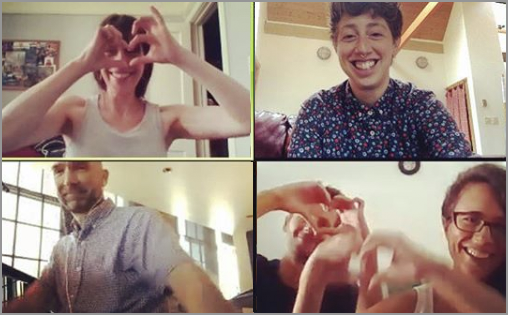The first time society’s lopsided metric of success bothered me was when I performed a public show at a local mall with my rickety, old electric bass. The response from my fellow musicians was lukewarm, despite my best efforts. I held myself responsible for my poor sound, even though I’d put in extra practice hours. Years after that, during one of my sessions with my mentor (who I could barely afford to pay at the time), I learnt that my shortcomings were due to my cheap instrument and not my technique.
Back then, I could not afford to get a new bass, even though my sound was completely off. After all those years of practicing via free YouTube tutorials at home—after getting myself to a point of playing public shows without any help—I was still ashamed of myself. Instead of being proud of my journey of pursuing learning an instrument with bare minimum resources, I judged myself hard for it.
How do we account for all the stepping stones and hurdles that shape the journey of a project? These hurdles—and our ability to tackle them—usually determine the “success” or “failure” of an undertaking. But, when we talk about success and failure in a binary way, we tend to ignore or negate real progress, which necessarily includes struggles and failure. And, in order to measure success only by an end result, we accept the assumption that everyone starts from the same place. What if we changed how we talked about success? When is a failure not a failure?
It was unfair for me to judge myself as a “failed bass player.” As I struggled over the years to understand how unfair the metric of success is, I frequently asked myself, How did we begin to equate success only with endings? Is reducing our journeys to absolute success or ultimate failure helpful? Are those the only ways of gauging our worth?
Almost 15 years ago, my bass playing was something I could not fully explore due to the financial hardships. My parents couldn’t afford any kind of music lessons for me because they had my medical bills to pay and they also supported our extended family. When I eventually dropped the instrument, a decade ago, it was mostly because I was frustrated by my lack of growth. I “failed,” so I quit—despite years of earnest practice and perfecting my form.
Whys & hows matter more than successes & failures
When we label our performance, efforts and journeys neatly as successes or failures, we miss out on an opportunity to understand the “whys” and the “hows” of our lives. We ask ourselves, Did I underperform at the improv? Am I an imposter in my PhD seminar? Can I really pursue pottery as well as my ceramicist friend does? All these questions and gnawing ideas revolve around the binaries of success that we seem to hold ourselves accountable to—and they’re often dead ends.
As someone who finds herself restricted by health conditions, I know firsthand that the world is not a level playing field for those like me who are disabled. I am certain, this is not just true for those who struggle with disability and health conditions, but also extends to those who are primary caretakers of family members living with terminal diseases and other chronic health conditions, as well as those who come from marginalized communities. The world, as we know, is not built equally and does not work in a way where it favors everyone with the same opportunities. How is it, then, that we use the idea of “success” and “failure” in the same way?
Different lives call for different measures of success
Differences in access can be due to life circumstances, which sometimes evolve over time. Perhaps at another point in your life, the conditions will be favorable for that hobby you can’t afford or the language you don’t have time to learn—but what if they’re not? If a condition in your life prevents you from accessing a project and limits your resources, then you may miss opportunities, no matter how frugal or innovative you can be. Or, you may not be able to take a project or endeavor as far as someone else can.
Individual choices also mean we need different metrics for success. For example, a multipotentialite with many projects on the go might choose not to dedicate intensive time and effort to a single endeavor or discipline. You may want to design your life differently, to create space for all the things you’d like to try and experience.
It is critical to acknowledge that multipotentialites are also experts; we can and do excel and rise up in ranks across fields and industries while pursuing diverse interests. Both multipotentialites and specialists can be frontrunners and experts in their field, but they all face the same heat when it comes to measuring success. The conditions of your life don’t doom you to exist without “true success,” nor does a desire to live differently. You’re not destined for failure! The trick is to create your own yardsticks for success, celebrate your wins, and practice a lot of self-compassion along the way. Take the road that works the best for you and use the markers of success that apply to and matter to you.
Comparison is the thief of joy & success
I grew up internalizing this idea of success and failure, projecting my insecurities by comparing myself to others: If I cannot play an instrument as well as the musician who has played it for years, then maybe I should discontinue and pursue some other craft. This narrative drained the joy from my life, since it prevented me from taking on and pursuing several other art forms and prevented me from exploring a future within any of those.
As a multipotentialite, I did not account for the fact that I brought multiple perspectives to all my work, and offered way more than one thing. I was hyper focused on the idea of “success” through perfection for everything that I tried to pursue, and external validation for all those things was never easy to get. This pretty much ensured that I would drop projects out of a fear of “failure.” I was fixated on the idea of doing “one thing” well enough before I moved on to other projects. Consequently, a lot of them were abandoned when I could not find the validation I was seeking. As an adult, I find joy in starting multiple projects all at once and seeing how they go, as opposed to stressing out about the results. At any given point, after work, you can find me gaming or painting or just writing. Since these take place without any compulsion to be a “hit,” I can actually enjoy the process of doing these as opposed to perfecting them all at once.
When is a failure not a failure?
As you assess your own performance, and that of those around you, consider the journeys and not just the end results.
Access to certain interests, hobbies, educational programs and consequently work opportunities are not effort-dependent alone. A lot of these require external factors including up-front capital, time, and someone to share responsibilities with in order to be conventionally successful. A lot of people quit mid-way through their respective journeys for lack of help and inadequate resources. To me, this is a failure of the system, and of society—not an individual failure. Many multipotentialites quit when they’ve gotten what they came for, not when society tells them it’s time.
It took a long time for me to be understanding of my abilities. I will never be perfect at everything I do, nor will I ever know everything about everything—and that is okay. I will stop and start things for different reasons at different times, and I’ll decide what that means for myself. Sometimes, putting our best foot forward is all that we can do, whatever our circumstances.
Your turn
What counts as “success” when you undertake a project? Is the journey alone fulfilling or do you need more external approval? Do we need to redefine success and failure? Share your thoughts with the community in the comments.

Doing/being/exploring ALL THE THINGS is easier with a community!

Did you know we have a private community of hundreds of multipotentialites from around the world? We support each other, share advice and cheer each other on as we build lives and careers around ALL our passions.
Learn more and join the Puttyverse community here:


Add to the conversation...